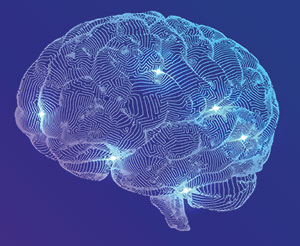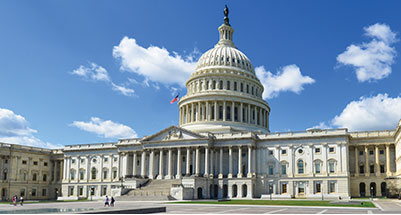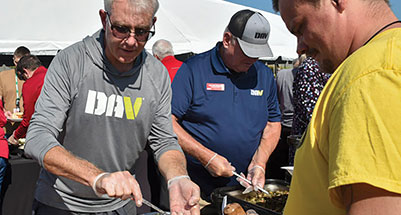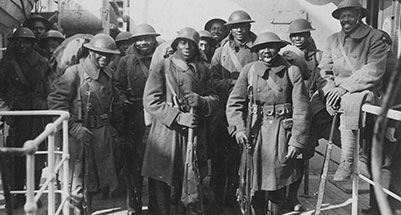 Veteran brain banks may hold the key to understanding PTSD, TBI and CTE
Veteran brain banks may hold the key to understanding PTSD, TBI and CTE
According to the Defense and Veterans Brain Injury Center, nearly 414,000 American military members were diagnosed with traumatic brain injuries (TBIs) between 2000 and late 2019. More than 185,000 VA veteran patients have been diagnosed with at least one TBI.
These numbers signal an urgent need to better understand the relationship between TBI, chronic traumatic encephalopathy (CTE)—a degenerative brain disorder caused by repetitive brain trauma—and post-traumatic stress disorder.
CTE is known to cause mood and behavior problems, impair cognitive function and disrupt standard sleep patterns. But even though physicians have been aware of the condition’s symptoms since the 1920s, the field of study is still in its infancy. To properly diagnose the disorder—and develop ways to effectively treat and prevent it in others—one must look inside the brain after death.
Established in 2008, and thanks to a partnership between the Department of Veterans Affairs, Boston University and the Concussion Legacy Foundation, the VA-BU-CLF Brain Bank has become the world’s leading research program on the long-term effects of TBI and head impact exposure. At the helm of this research program is Dr. Ann McKee, one of the world’s most accomplished researchers on neurodegenerative disease.
“The primary reason I run brain banks as a neuropathologist is that it’s the fastest way to accelerate research on a specific condition,” said McKee. “For this brain bank, we study repetitive head trauma. We study contact-sport athletes and military veterans primarily.”
Brain banks follow organized research protocols that allow for harvesting of brains after individuals have died. Through donations, these brain banks receive their subjects at autopsy when the brain is removed. The brain is then directed to the VA-BU-CLF research center and from there frozen and set up for further research.
The donations from veterans come through an initiative called Project Enlist. This initiative serves as a catalyst for research on military veterans with TBI, CTE and PTSD by rapidly increasing the number of veteran brains donated for study.
“Brain donation may sound a bit macabre in normal conversation, but especially for the families who have watched their loved one cope with the debilitating symptoms of CTE and PTSD, having that proper diagnosis after the veteran passes away can help bring closure,” said Washington Headquarters Executive Director Randy Reese. “And just like any other organ donation, it can help to advance research and benefit others as well.”
Word-of-mouth communication from pledged donors has helped fuel new donations. But since the harvesting must happen within a short window after an individual has died, advance planning is crucial. Former VA Secretary Robert A. McDonald, an Army veteran and DAV member, has become a proponent for the brain bank and is a pledged donor.
“The more I learned, the more compelled I became,” said McDonald. “By offering my brain for research, I knew it could be helpful going forward. At this time, we cannot discover CTE using scanning techniques; we actually needed the brain itself. We can only diagnose through dissection. When I discovered that, I knew we needed more brains—more veteran brains.”
So far, the bank has received just over 1,000 brain donations. Out of that, more than 600 of the cases were diagnosed with CTE. That is more than 70% of the world’s cases, all showing signs of CTE and other brain-related injuries. Out of those numbers, only 189 donors were veterans with just one female veteran. Of the 189, 40 veterans were diagnosed with TBI from their service and only 17 were exposed to blasts.
Both McKee and McDonald say brain donations among veterans must continue to grow, which could have a positive impact on the next generation of veterans.
“All of us who have served in the military look for opportunities to continue to serve,” said McDonald. “This is another opportunity for veterans. This is an opportunity to donate their brains and further the medical science and, more importantly, further preventive techniques of brain damage.”
“The importance of this work is really for the people who come after these individuals,” said McKee. “It is a legacy donation. Each brain is cared for and treated with extreme respect. There is no identification or personal information that is released whatsoever. For the families, it’s a way of making the death of a loved one lead to bigger discoveries. It advances the research that may help lead toward diagnosing CTE during life and developing treatments for it.”
Learn more
To pledge a donation to the VA-BU-CLF Brain Bank, visit www.projectenlist.org. For imminent brain donation, if a veteran has died and the family is interested in brain donation, please call the 24-hour VA-BU-CLF Brain Bank emergency brain donation number, 617-992-0615.






